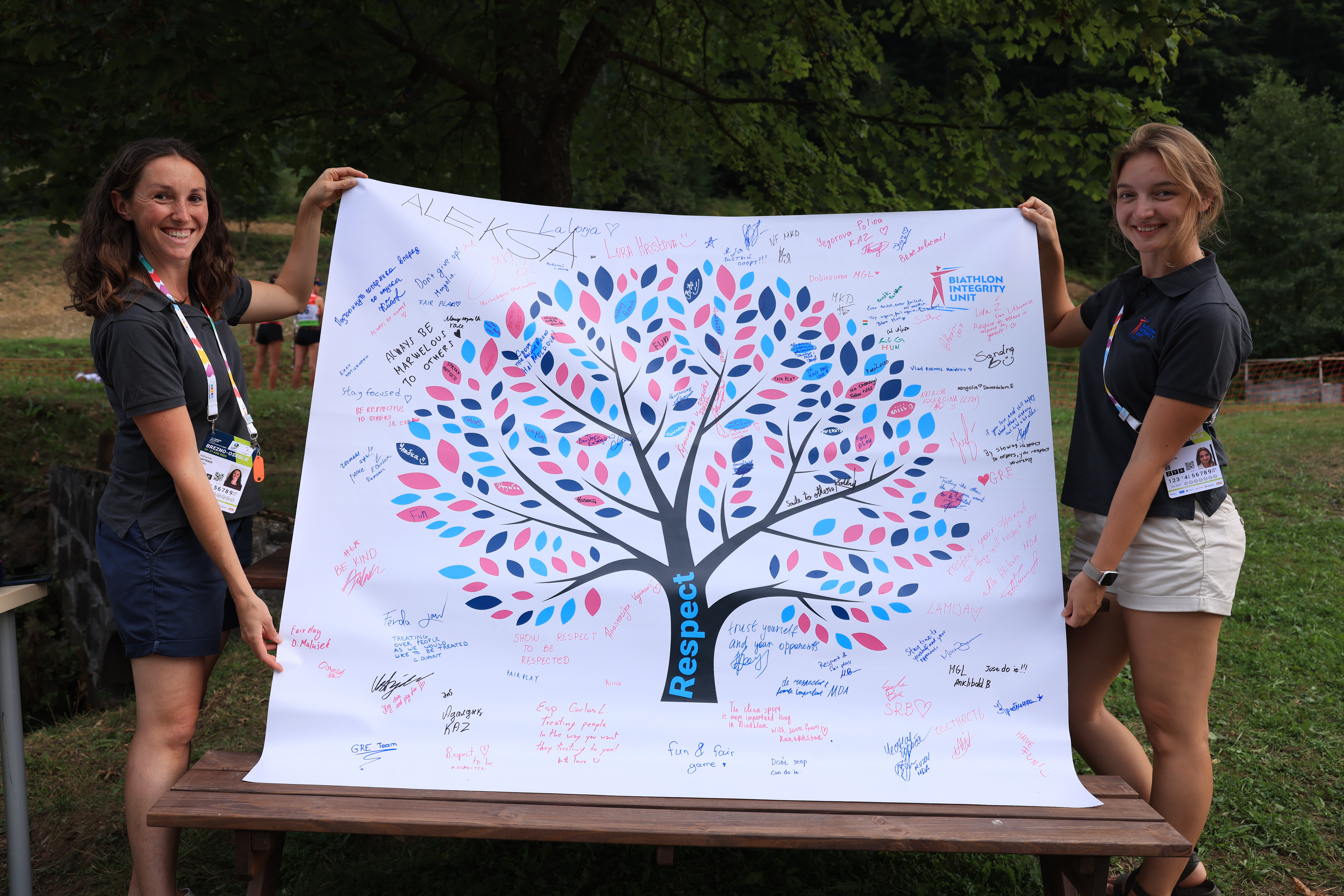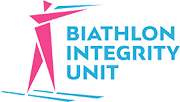Mental health in biathlon
In our latest podcast interview we spoke to Olympic gold medallist turned mental health coach Marie-Laure Brunet about what mental health in sport means to her.
Marie-Laure is a French former biathlete who works with athletes to optimise and activate their potential, while helping them to overcome the obstacles they may face.
She has some great advice about what to do if you suspect that one of your teammates – or even one of your opponents – is suffering mental health difficulties.
Having suffered a collapse as a result of burnout at the Sochi 2014 Winter Olympics, she speaks from experience, so her observations on the signs that might indicate mental health problems are worth listening to. She also explains how she would approach her career differently if she were to start again, and ends with some valuable tips to other athletes on maintaining their mental health.
Don’t miss this one!
To listen to the podcast, click here.
WADA Prohibited List updated
The World Anti-Doping Agency has issued an updated List of Prohibited Substances and Methods that will come into force on 1 January 2024.
Among the changes, the use of tramadol as a painkiller is now prohibited in-competition. The amendment was made after research studies, funded by WADA, confirmed its potential to enhance sports performance.
The recommended ‘washout period’ for tramadol will be communicated by WADA before 1 January 2024. The ‘washout period’ refers to the time from the last administered dose to the time of the start of the in-competition period.
Athletes and their entourages should familiarize themselves with all of the changes to the Prohibited List. Click here for a summary of the major modifications.
If a medication you use is on the list, you need to apply for a Therapeutic Use Exemption (TUE) before using it. Find out more about TUEs in our newest video.
An average of one to five TUEs are issued in biathlon each year (for various types of medication for long-term or short-term usage), with no abuse of TUEs in the sport detected to date.
Always remember: if you need to use a medication for your medical treatment, you must make sure to check the Prohibited List before using it!
Preparing for the new season
“Be your own best friend”, says BIU athlete ambassador Chloe Levins.
With the new season fast approaching, the BIU spoke to its recently-appointed athlete ambassador, USA’s Chloe Levins, about preparing mentally and physically for the demands ahead, in its latest podcast interview.
Chloe has some great advice about eating healthily, the use of techniques such as visualisation, and how to avoid illnesses, such as cold and infections, when travelling to races.
Chloe also emphasises the importance for mental health of being able to switch off from racing. She herself makes sure that she always travels with a book to read, and stresses the value of meditative practices, whether it’s knitting or playing an instrument.
She concludes with this valuable tip for young athletes: “Frustration really is the thief of growth: it’s better to be your own best friend than your own worst critic in a sport like biathlon”.
Click here for the full interview.
BIU launches improved reporting hotline
The BIU has made some important changes to its online platform for reporting wrongdoing in biathlon.
Among the changes, the platform has been made more user-friendly, including its availability in three languages: English, Russian and German. What’s more, you can reach us via telephone and email. Feel free to use BIU Reporting Hotlineyour own language when sending an email of submitting a report.
And it’s not just about doping. The hotline is open to report any suspected breaches of the IBU’s governance, ethics and integrity rules.
The platform plays a crucial role in the BIU’s campaign to ensure that biathlon is a fair, clean and trusted sport. We depend on everyone involved in the sport, from athletes to national federation officers, being prepared to make use of the hotline if they see or hear something that isn’t right.
You are our eyes and ears. Even the smallest piece of information can make a big difference in helping to ensure the integrity of biathlon.
And remember: if you make use of the hotline, your identity and the information you give us will remain strictly confidential.
To access the platform and hotline, and for more details, click here.
Athlete vulnerability
A podcast interview with Cornelia Blank, professor and deputy head of the Institute for Sports Medicine, Alpine Medicine and Health Tourism at the Private University for Health Sciences and Health Technology UMIT TIROL in Hall in Tirol, Austria.
In our latest podcast interview we spoke to Cornelia Blank about athletes’ vulnerability, in particular to doping. What is athlete vulnerability, what influences it, how can coaches and others in authority spot the signs and how can we make athletes less vulnerable?
The podcast echoes a session on athlete vulnerability led by Cornelia during the IBU Academy Coaches Course Level 2 in Oberhof on 23 to 27 September, 2023. Twenty coaches from various countries participated, many of them extremely experienced national team coaches.
With a background in health sciences and psychology, Cornelia’s research focuses on prevention and health promotion in and by means of sport, giving her a unique insight into the topic.
Listen to the full interview here.
Summer of Respect outreach at the Summer Biathlon World Championships
The BIU rounded off its Summer of Respect campaign with a three-day outreach programme for athletes and support personnel at the Summer Biathlon World Championships in Brezno-Osrblie, Slovakia.
The aim was to provide information and education on respect in biathlon at the Championships between 24 and 26 August, 2023.
The Summer of Respect campaign was initiated to help ensure the integrity of Biathlon by encouraging biathletes to show respect for the things that matter most in our sport.
Respect has been defined as: ‘Treating others as you would want to be treated. This reflects the qualities of being polite, kind, courteous and tolerant of others’ views, cultures and beliefs’ (https://www.i-value.eu/toolkit.html). It also includes respect for yourself and your body, for other people, for rules and regulations, for sport and the environment, according to the International Olympic Committee.
The outreach programme included a quiz and two other activities in relation to respect:
- A ‘tree’ poster on which athletes and support personnel could write down what respect means to them;
- A social media challenge, inviting athletes and support personnel to video themselves talking about their own experiences of respect in biathlon, with the best stories winning a prize.
The BIU was delighted at the high level of interest shown by athletes and their support personnel, with more than100 individuals participating in the activities. “Respect the people around you and treat everyone the way you want to be treated” – this is what sums up the athletes’ opinion.

Although the main topic of the outreach programme was respect, everyone was welcome to ask any questions about other integrity issues, such as anti-doping and safeguarding, at the BIU booth.
The quiz can be found here.
Combating abuse in sport
The BIU spoke to Allison Forsyth, a former Alpine skier who was herself a victim, about safeguarding and Safe Sport.
She discussed her own experience of abuse, how the culture of sport, with frequent travel, can make athletes vulnerable and whether sports organisations are getting better at tackling it.
She also spoke of the need for change in the culture of hiring coaches, and how victims might not even know they’re being abused.
Listen to the full interview here.
Meet our new Athlete Ambassador!
A podcast interview with our newly-appointed Athlete Ambassador Lovro Planko
In the second in our series of podcast interviews with the BIU’s two new athlete ambassadors. Slovenia’s Lovro Planko spoke to us about why becoming a BIU athlete ambassador enables him to give back to the sport.
He also told us how he avoids forgetting to register his whereabouts and advised young athletes facing their first anti-doping test not to be nervous, and relax!
And – as the BIU launches its Summer of Respect campaign – Lovro told us what respect in biathlon means to him.
Click here to listen to the interview.
Meet our new Athlete Ambassador!
The BIU has just appointed two new athlete ambassadors. We spoke first to USA’s Chloe Levins about her motivation in becoming a BIU athlete ambassador, about the role of the athlete ambassador and what athlete ambassadors can do to help to ensure the integrity of biathlon.
Chloe discussed with us the importance of athletes using our hotline to report any wrongdoing (e.g., breaches of the safeguarding rules, doping and match-fixing), her research into the history of how performance-enhancing techniques were utilized in Olympic sports as leverage for political power and what golf can teach other sports about honesty and integrity.
Click here to listen to the interview – you don’t want to miss it!
Recent Posts
- Finding Calm in the Middle of Competition: Athlete365 x Powerade Mind Zone
- Robust Testing Programme Ahead of the Olympic Winter Games Milano Cortina 2026
- Biathlon Integrity Unit has received confirmation of Anti-Doping Rule Violation of Italian Biathlete Rebecca Passler
- Social media abuse – and how to respond to it
- Focus on contamination











